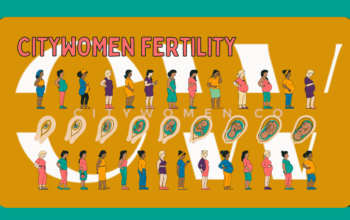
March 08, 2020 at 07:00PM by CWC
Despite conventional “wisdom” in the healthy eating community, processed foods aren’t inherently bad for you. Yes, a consumer has to be wary of excessive amounts of sodium or hidden sugars, but generally, a packaged food here or there is not the end of the world.
That said, there are certainly some shady ingredients that pop up in packaged foods. Ever had the experience where you look at a label to see a long list of ingredients, only a fourth of which are even remotely recognizable? Not a great feeling, is it.
Again, some ingredients that sound like “chemicals” aren’t necessarily bad. But when asking a few RDs which food ingredients to avoid, there was a common consensus: high fructose corn syrup and artificial sweeteners.
Why RDs avoid these two common food ingredients
ADVERTISEMENT
ADVERTISEMENTKate Spade Autumn/Winter Sale |
High fructose corn syrup and artificial sweeteners can negatively impact health based on various research, says Kelly Jones, RD, who avoids these two additives and recommends her clients do the same.
“I am not a fan of things that contain high fructose corn syrup or that contain artificial sugars and will not buy things that contain them,” agrees Maggie Michalczyk, RD.
Unlike some other ingredients that have unfairly gotten a bad rap over the years (cough, soy), high fructose corn syrup—which is a sweetener made from corn—in particular has been proven to be bad for health. “It has been shown to promote insulin resistance, which then reduces the body’s ability to adequately control blood sugar,” says Gabrielle McGrath, RD, a dietitian for Baze. The ingredient has also been associated with obesity and diabetes. Surprised? Well, you shouldn’t be, because HFCS is just another form of added sugar.
Want to know more about sugar—and if any of it is healthy? Get the lowdown from a top dietitian:
As for artificial sweeteners like saccharin, aspartame, and sucralose, those are big red flags for most health experts. “While more research is warranted, preliminary studies have shown artificial sweetener consumption may disrupt the gut microbiome, which is critical for regulating immune health, normal metabolic function, mental health and more,” Jones says.
“Aspartame in particular has been under fire in recent years as human research has suggested the popular sweetener in diet beverages may disrupt antioxidant function, induce oxidative stress, and damage cell membrane integrity, which could lead to inflammation and pose a health risk,” says Jones. Some human data suggests aspartame increases cortisol levels (you know, the stress hormone) and impairs insulin function, too.
Plus, McGrath worries that artificial sweeteners can skew a person’s taste. “The biggest reason why I encourage people to try to limit these as much as possible from their daily routines is that it adds an unnatural amount of sugar to their diet that they would not otherwise get,” she says.
Michalczyk agrees. “These types of sugars have no nutritive value and can even end up altering the way we perceive sweet stuff by changing our perception of sweet,” she says. “Such a small amount of these artificial sweeteners produces a sweet taste comparable to that of sugar, to the point where fruit is less sweet and the taste of vegetables is super bitter—though an extreme example.”
In some cases artificial sweeteners can cause digestive upset as well, Michalczyk adds, so if you have a sensitive stomach, be wary.
How to avoid these ingredients in packaged food
Both of these ingredients are common, even in healthy foods, but thankfully it’s not impossible to avoid them.
“When I am picking packaged items I look for things that are low in sugar and especially not sweetened with high fructose corn syrup or artificial sugars like saccharin, acesulfame, aspartame, neotame, and sucralose,” says Michalczyk.
ADVERTISEMENT
ADVERTISEMENTSports Direct Free Delivery on All Orders! |
A few tips? HFCS is often is soda, canned foods, yogurts, jam/jelly, peanut butter (processed), bread, juice, salad dressing, and sauces, says McGrath. “It’s important to check the ingredient list to make sure HFCS is not on the list for the products you frequently enjoy,” she says.
As for artificial sweeteners, these can be found in so many products so again, it’s always good to check the ingredients lists. “Artificial sweeteners include sucralose and aspartame,” says McGrath. Other foods containing these include soft drinks, candies and desserts, dairy products like yogurt, and various canned foods, she says.
The bottom line: When you want packaged goods, read that label well and be on the lookout for those shady ingredients.
Looking for other smart advice? These are the “golden rules” of healthy eating, according to experts. And these minimally-processed snacks are always a healthy choice.
Author Isadora Baum | Well and Good
Selected by CWC

ADVERTISEMENT
ADVERTISEMENTUp to 30% off Gift Sets |







